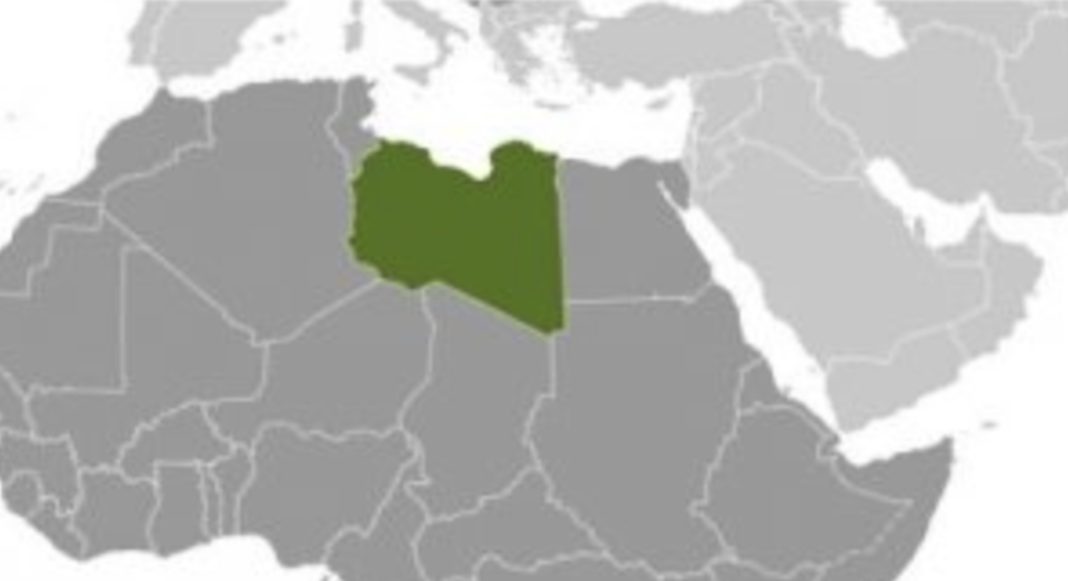By Janet Ekstract
ISTANBUL (TURKISH JOURNAL)- With elections scheduled for December 24, the fate of the Libyan people will likely depend on the level of transparency in the election process. Repeated ceasefires were broken by warlord and former commander of the government in eastern Libya – Khalifa Haftar. Haftar was also being investigated by the International Criminal Court (ICC) on charges of genocide in Tarhuna but to date, has not been brought before a tribunal. This is significant in the upcoming election because Haftar was allowed to temporarily step down as military commander to enter the election. Though Western powers are calling for an “inclusive” election, the chances of that happening are almost nil.
Libya is a nation of multitudes of political factions, none of whom agree on any specific ideology and as analysts have observed, most of whom are not prone to negotiation especially when their own agenda is at stake. It is common knowledge by regional experts and observers that Haftar’s sole purpose in the past was to take total control of Libya aka its oil reserves. As a former strongman of Moammar Gaddafi who switched sides and aided the CIA in exchange for citizenship and other perks – Haftar could very well come out on top in the upcoming election. Though the UN Security Council on Thursday, extended its mandate for the United Nations Support Mission in Libya (UNSMIL) through January 31, there are a number of factors that could negatively influence the election outcome.
A significant one is the fact that 20,000 mercenaries, foreign fighters and foreign forces still remain within Libya who are capable of tipping the delicate balance of any future government in the country including the current interim government of Prime Minister Abdul Hamid Debeibeh, in office since March 15, 2021. This government was forged after a second ceasefire in October 2020 and numerous negotiations with a wide swath of factions in Libya, in an attempt to create an inclusive government for the country. Despite the mission extension, there is still debate within the Security Council about the withdrawal of those mercenaries remaining in Libya. Previously, the Security Council extended UNSMIL’s mandate for only two weeks due to disputes between Russia and the West over the withdrawal of mercenaries, foreign fighters and foreign forces that was part of a ceasefire agreement set forth in October of last year between rival Libyan governments in the east and west of the country.
Meanwhile, Britain’s U.N. Ambassador Barbara Woodward said, “Libya is at a critical point.” She reiterated that elections must “take place on time” and remain “credible and inclusive.” She urged Security Council members to insist on full implementation of the ceasefire agreement to include the withdrawal of all foreign forces and mercenaries from Libya. Woodward added: “without qualification and without delay.”
Britain has put forth a draft resolution calling on all nations to abide by the U.N. arms embargo on Libya which includes the withdrawal of all armed mercenary personnel and is especially worried about the impact of any Libyan conflict on neighboring countries. In addition, January 31 is also the date that U.N. special envoy Jan Kubis’ contract ends. Currently, there is a conflict about where Kubis should be based since he works from Geneva. UNSMIL recommends its chief relocate to Tripoli, Libya’s capital. The West supports this while Russia has opposed it. The point must be made that Russia is also an enthusiastic backer of Haftar whose presence once again comes into play in December 24 elections. The vote on Thursday delayed a Security Council statement on mercenaries and foreign fighters as well as where Kubis will operate from. The resolution drafted by Britain also agreed that the UNSMIL chief should be based in Tripoli and requested that UN Secretary-General Antonio Guterres retain Kubis as special envoy for six months “to focus on engaging with the Libyan actors, and with the international actors to end their role in the conflict.”
In any case, to ensure a fair election outcome in Libya, there will need to be transparent monitoring on the ground from a variety of parties within the international community. The Libyan people’s future is at stake as is the political fate of its neighbors. With 20,000 mercenaries on the ground, it’s likely that anything could happen at any moment. Last September, a report from U.N. experts monitoring the implementation of sanctions on Libya said the warring parties and their international backers – the United Arab Emirates, Russia and Jordan as well as Turkey and Qatar have violated a UN arms embargo. That report also indicated that 11 companies violated the arms embargo, including the Wagner Group, a private Russian security company. In May 2020, the experts revealed that Wagner provided between 800-1,200 mercenaries to support Haftar, the eastern Libyan commander.




